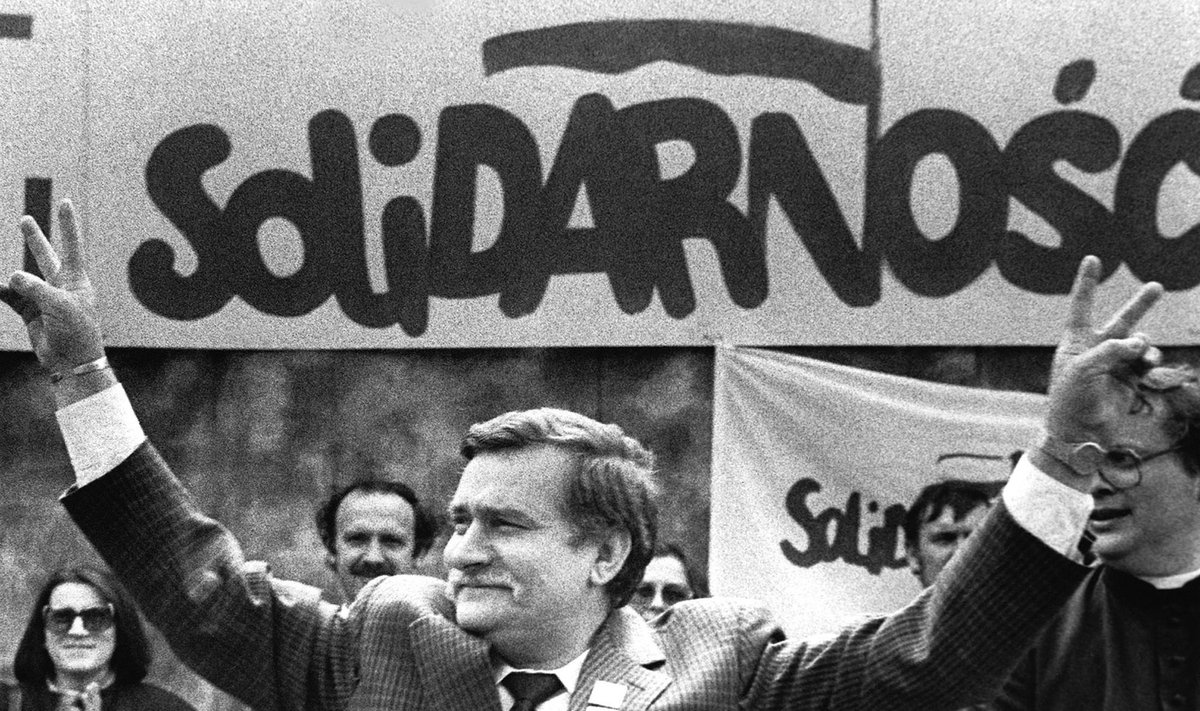The documents were taken earlier this week from the home of a former communist-era interior minister, General Czeslaw Kiszczak. Kiszczak had played a leading role in trying to break up the first independent trade union in the Soviet bloc, Solidarity.
Lukasz Kaminski, head of the Institute of National Remembrance, said the documents appear authentic. Mr Walesa has long denied being an informer in the 1970s.
Mr Kaminski gave details of what he claimed was inside a file on Mr Walesa, covering the period 1970-1976:
"Inside the personal file there is an envelope and inside, a hand written commitment to cooperate with the secret police signed 'Lech Walesa - Bolek'," he said.
Mr Kaminski said that among the documents were some "hand-written confirmations of receiving funds", signed with the pseudonym 'Bolek'.
"In the work folder... are many reports by a secret informant with the pseudonym 'Bolek' and notes by secret police officers from meetings with the secret informant," he said.
Walesa himself immediately denied the allegations. The former president said the new materials could not have originated from him, according to Polish radio.
Experts have consistently raised doubts about the credibility of communist-era secret police files, arguing they could easily have been manufactured to frame opposition activists like Walesa.
Walesa was awarded the Nobel Peace Prize for non-violent resistance in 1983. Walesa was a worker at the shipyards in Gdansk.
All the 279 pages of documents have not yet been properly analysed, and will be made public in due course, Kaminski said.
